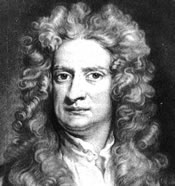Physics
An Introduction
A Discourse on Physics
Since the beginning of recorded human thought we see a single motif; the craving for understanding of ourselves and the universe we live in. While the former may be discussed later, we will focus on understanding the universe we live in presently.
When we talk about physics in this case we will be taking a very broad look at physical phenomenon, allowing us the greatest freedom to jump about space and time. Centuries ago, Isaac Newton gave us many great ideas about how things physically behave on our planet, while Einstein wove us a fabric we could swaddle our universe in.
Observe and Report
While some Engineers and Scientists design robots and rockets, others watch e-coli grow on feces. The bottom line is the journey from question to answer. Using general problem solving skills, mixed with the knowledge of those who passed before us, we will be able to answer questions like: What causes the colors of a rainbow? Why can you simulate "weightlessness" on earth by taking a nose dive in an air-plane? Could I play Basketball on Jupiter? (the answer to the last is: probably not, while here are a few playable courts and a couple of leagues, the hours of the gyms are horrible and the staff completely incompetent).
Why Physics?
The word physics meant to the ancient Greeks: 'the knowledge of the natural world'. The first attempt of organizing and recording knowledge of nature that we know of is Aristotle's work. Here we have to pause to take a look at an interesting phenomenon in science.
Aristotle had a few 'assumptions' about the universe around him, among them was that matter had a "natural place" in the universe, and motion was a result of an attempt to reach this place. Since then we have been given a few laws of motion we hold to be true and almost obvious, but none the less ingenious when Newton wrote them. (Some of these ideas can be seen in the earlier work of Descartes who died when Newton was just seven years old.)
In a seemingly unrelated tangent, Mercury's orbit had appeared to be slightly irregular and unpredictable since the beginning of Astronomy until sometime in the 20th century. Einstein's 'Theory of Relativity' was as much of an accomplishment in the scientific community as it was a punching-bag. However, after an expedition was lead to measure and test Einstein's new theory against the data on Mercury's orbit observed during an eclipse, it was finally confirmed and has been taken as such since (along with other experimental confirmations).
Einstein’s revolutionary theory, in the field of theoretical physics, had later been used to show phenomenon as diverse as the bending of light during a solar eclipse, the famous “red shift” and the irregular movements of Mercury through the heavens. What is amazing though, coming full orbit, is that Einstein's comments about Mercury's movement were based on that fact that it was merely the path of least resistance through the fabric of space-time! Aristotle had a similar philosophy almost 23 centuries earlier.
This is an example of how physics can follow a reverse-chronological path through history and show how long it can sometimes take the most advanced mathematicians and physicists to prove what may intuitively have seemed obvious.
The importance of Philosophy
While physics can discuss the behavior of planets and particles alike, it is essential to “step out of the box.” The main goal of physics is to understand the relationship between us and the universe; it is an eternal quest for ultimate truth.
While we can sometimes get distracted by the seemingly endless interesting specifics of the subject we need to keep a holistic perspective. This is where philosophy comes in. Philosophy enables us to step out of the box and ask questions about the very journey we are taking. Is our consciousness a limiting factor in our ultimate search for truth in the universe? Is the brain capable of figuring itself out?
Questions like these and others are an intriguing part of the journey through life and the sciences. A healthy balance between the details of phenomenon and the generalities of existence are an important part of any well-structured though about the universe we inhabit. Thus, the interplay of Physics, Philosophy, Mathematics, and Psychology can not be stressed enough. This is only a rough sketch.
The physicist, like a true Renaissance Man, can balance a multitude of subjects, each adding to the strength of the others. Da Vinci meets the Jack-of-all-Trades meets the Mad-Hatter.
